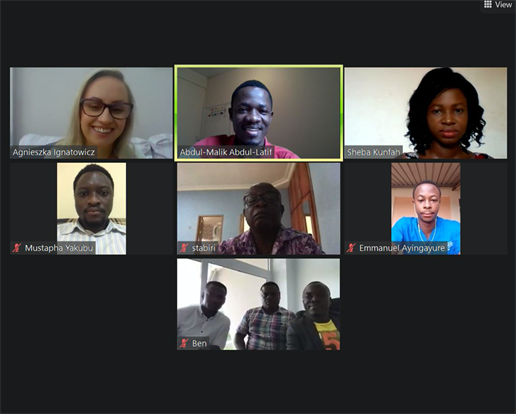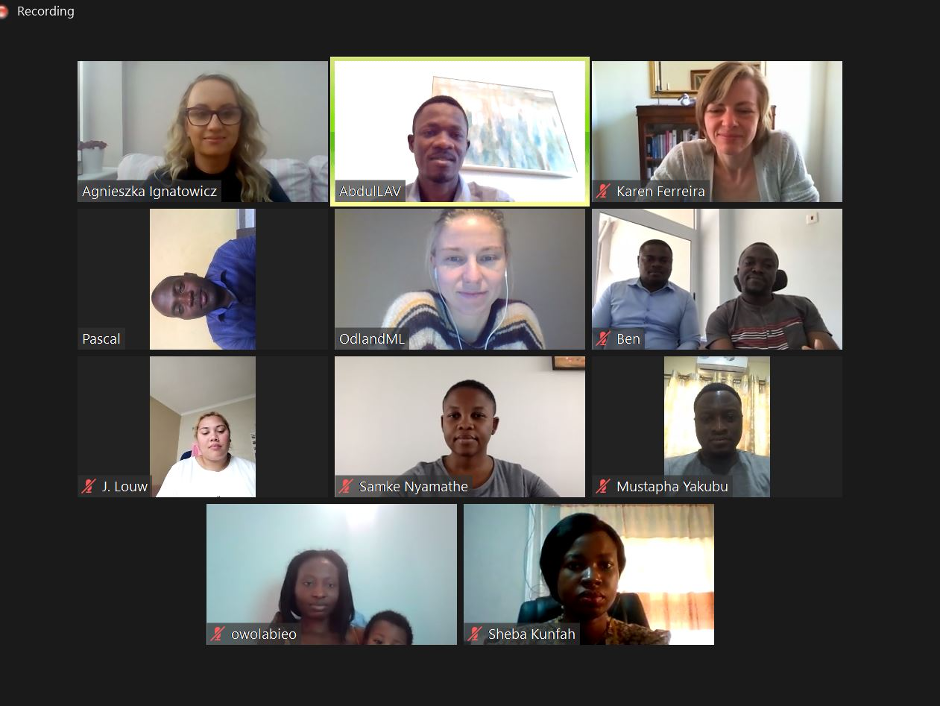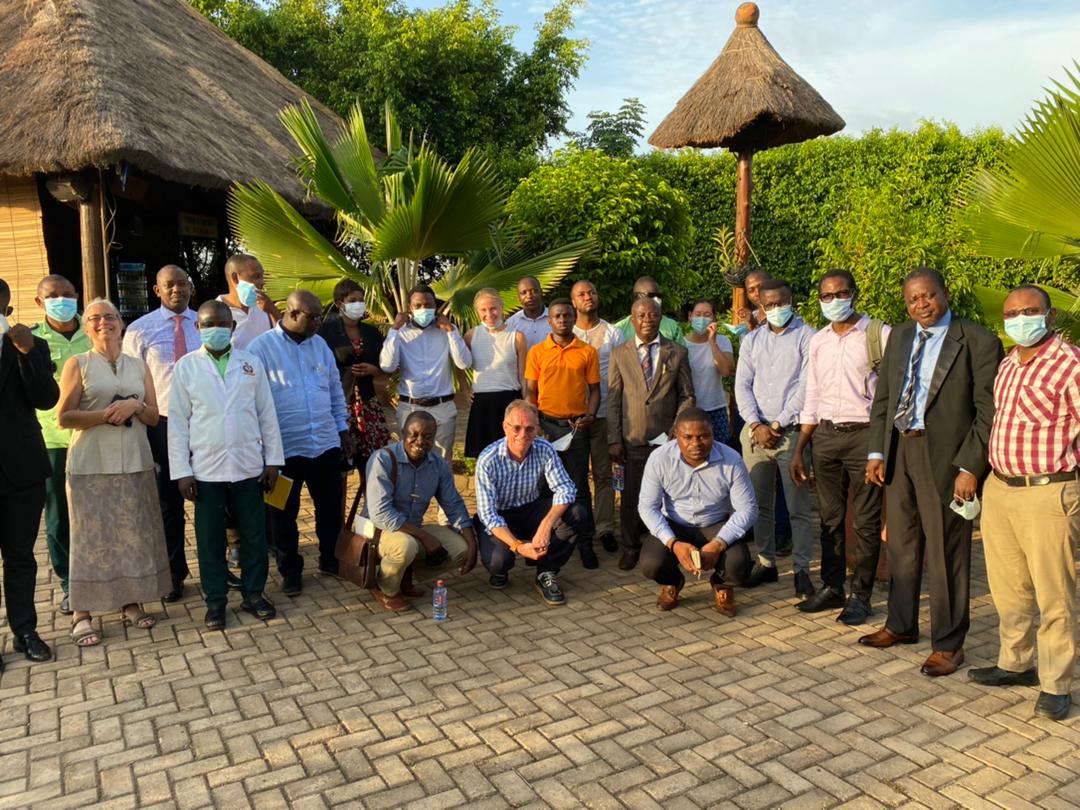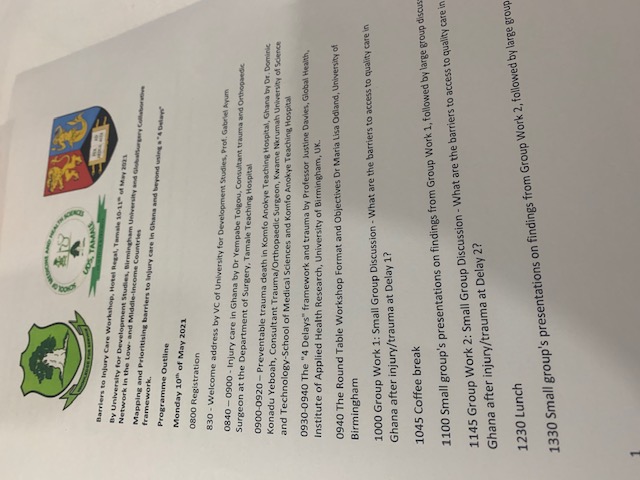NIHR trauma project news
The University of Birmingham team have created and delivered bespoke training for their colleagues in Ghana, South Africa and Rwanda in the areas of research skills and research management. This training is an important part of strengthening our relationship and successful collaboration with partners.
Qualitative research training: 28th September – 1stOctober 2020.
 Training of research assistants in South Africa and Rwanda
Training of research assistants in South Africa and Rwanda
On 23rd November 2020, the NIHR trauma project team at the University of Birmingham rolled out the second phase of qualitative training for the Research Assistants at the partner universities in Ghana, South Africa and Rwanda. In this session we focused on analysing data from key informant interviews and focus group discussions using NVIVO.
Our partners in Ghana, conducting socially distanced focus group discussion at the Yendi Municipal Hospital on access to care for injured people. During the field visit, the team encountered a patient with strangulated inguinal hernia and decided to operate on him before heading back to the Northern Regional capital in Tamale.
Great to see the level of enthusiasm exhibited by the team to understand barriers to trauma care access in Ghana even during the Covid 19 pandemic. The pandemic may have slowed the project but haven’t affected the tenacity of the team to deliver quality data.
December 17, 2020, our team at the University of Birmingham held the last meeting for 2020 with all project partners from Ghana, Rwanda and South Africa to review the NIHR funded project activities on trauma care for the year. The meeting offered us the opportunity to reflect on the successes as well as challenges during the year to guide plans in the year ahead.

Mapping barriers in access to injury care in South Africa
On 11 March 2021, our South African team held a workshop with healthcare providers, stakeholders and patients to map barriers in access to injury care in South Africa. In total, there were 34 participants and the workshop was conducted according to local rules using protective equipment and social distancing.
Altogether 49 barriers in access to injury were identified by the participants and the top prioritised barriers were; 1. Socioeconomic factors making it difficult to reach care, 2. Lack of resources at facilities, 3. Perceived waiting period at health facilities and 4. Lack of access to radiology services after closing hours.
We are very proud to be working with such a great team in South Africa that managed to organise this workshop during these difficult Covid times.

Workshop on access to injury care in Tamale, Ghana
The first week of May we travelled to one of our data collections sites in Tamale, Ghana, to host our last workshop on access to injury care. We also had our end of grant investigator meeting with all the principal investigators and research assistants from each country. Colleagues (including Deans of three medical schools) from Ghana, Rwanda, and South Africa were present. It was a great final meeting where we had all the results from each country presented by the data collectors. We discussed the findings, came to consensus on important barriers in access to injury care and agreed on the next steps.
